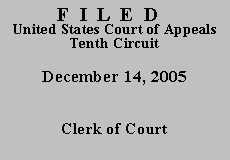

| UNITED STATES OF AMERICA,
Plaintiff-Appellee, |
|
| v. | |
| KHAMPHAY SOUVANNARATH,
Defendant-Appellant. |
|
On July 28, 2004, law enforcement officers served a no-knock search warrant at Souvannarath's residence in Enid, Oklahoma. Prior to serving the search warrant, officers stopped Souvannarath's vehicle and detained him. Under the driver's seat of Souvannarath's vehicle, officers found several coin bags containing a white powder. Officers also discovered another bag with a larger amount of white powder. After chemical analysis of the substance, it was positively identified as 9.33 grams of methamphetamine. During the search of Souvannarath's residence, officers found two fully loaded handguns in a bedroom dresser.
Souvannarath argues that the district court failed to adequately consider the sentencing factors set forth in 18 U.S.C. § 3553(a), and as a result, it imposed an excessive sentence. Additionally, under § 3553(c), he contends that the district court failed to sufficiently articulate reasons for the 188 month sentence.
We review "the district court's legal interpretation and application of the sentencing guidelines de novo and review the court's factual findings for clear error, giving due deference to the district court's application of the guidelines to the facts." United States v. Henry, 164 F.3d 1304, 1310 (10th Cir. 1999). Moreover, we now review sentences for "reasonableness" looking to the factors discussed in 18 U.S.C. § 3553(a) for guidance. Booker, 125 S.Ct. at 766; see United States v. Morales-Chaires, No. 05-1190, 2005 WL 3307395, at *4 (10th Cir. Dec. 7, 2005) (applying the reasonableness standard to a post-Booker sentencing).
In light of Souvannarath's status as a career offender under U.S.S.G. § 4B1.1, a total offense level of 29, and a criminal history category of VI, the presentence report calculated his guideline range to be 151 to 188 months.(1) Neither Souvannarath nor the government raised any objections to the presentence report. At sentencing, Souvannarath asked the district court for leniency and a sentence of six years. The government made no recommendation. After considering the applicable guideline range, the district court stated:
Well, Mr. Souvannarath, I have read and considered the presentence report and your case . . . and I must say that based upon your history, I justI just disagree with your assessment of the case. I do understand that I'm not bound by the guidelines, but I think in this case I certainly have to give them deference and I think they're appropriate in this case, and because of your history of violence and your involvement with weapons and drugs, that the high end of the guidelines are appropriate in your case.
Vol. II at 6.
We conclude that the district court's statements reflect that it properly considered the sentencing factors enumerated in § 3553(a). See United States v. Kelley, 359 F.3d 1302, 1305 (10th Cir. 2005) (stating that we do not require the district court "to consider individually each factor listed in § 3553(a) before issuing a sentence," "nor do we demand that the district court 'recite any magic words' to show us that it fulfilled its responsibility to be mindful of the factors that Congress has instructed it to consider") (citation omitted). Similarly, we determine that the district court satisfied its burden to "state in open court the reasons for its imposition of the particular sentence." 18 U.S.C. § 3553(c). On a final note, we observe that there is nothing in the record to suggest that Souvannarath's 188 month sentence, although at the high end of the guideline range, is unreasonable.
Accordingly, Souvannarath's sentence is AFFIRMED.
Entered for the Court
Mary Beck Briscoe
Circuit Judge
*.This order and judgment is not binding precedent, except under the doctrines of law of the case, res judicata, and collateral estoppel. The court generally disfavors the citation of orders and judgments; nevertheless, an order and judgment may be cited under the terms and conditions of 10th Cir. R. 36.3.
1. The statutory maximum for Souvannarath's firearms offense was 120 months.